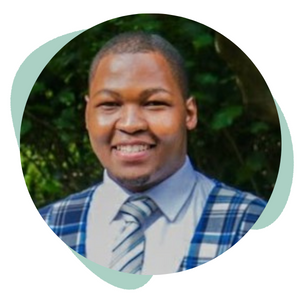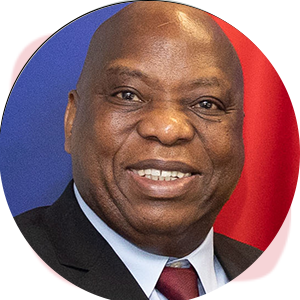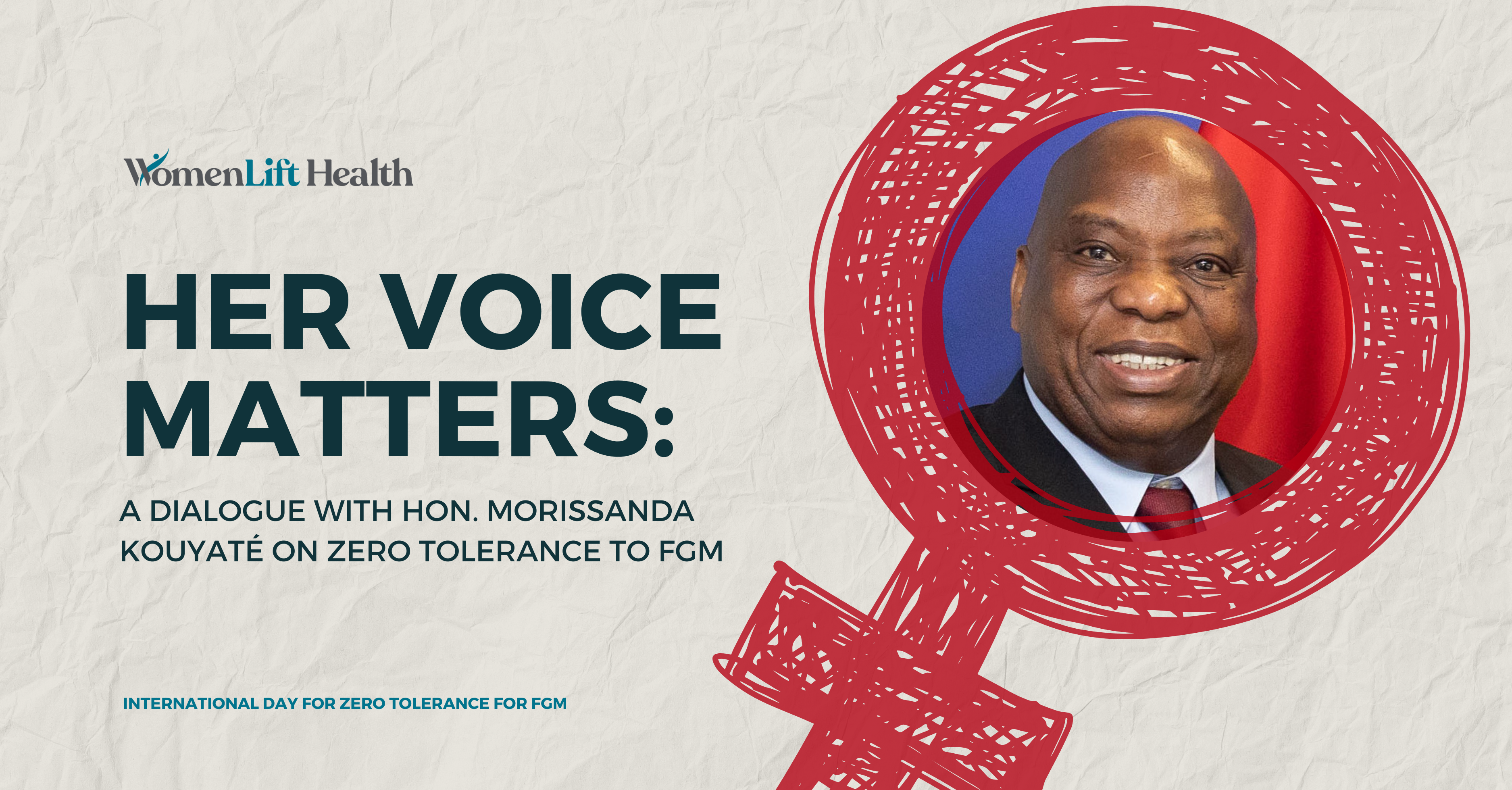In 2024, nearly 4.4 million girls – or more than 12,000 each day – are at risk of female genital mutilation around the world. In the ongoing battle against Female Genital Mutilation (FGM), voices of advocacy and change emerge from unexpected quarters. One such powerful force challenging the status quo, is a male champion who with unwavering determination, stands against this deeply entrenched violation of human rights.
In commemoration of the International Day for Zero Tolerance to FGM, we delve into a dialogue with Hon. Morissanda Kouyaté, a distinguished medical doctor, and the Minister of Foreign Affairs, International Cooperation, African Integration and Guineans abroad in Guinea Conakry, honored with the Nelson Rolihlahla Mandela 2020 Prize. Through his unique perspectives and experiences, we explore the story of an ardent advocate actively dismantling stereotypes and dispelling misconceptions surrounding FGM.

What inspired you to become an advocate against Female Genital Mutilation as a male champion?

How did the tragedy with the two girls who lost their lives inspire you to take action?
Motivated by this ordeal, I took action. I authored a pamphlet detailing the dangers of female circumcision and submitted it to the Ministry of Health in Guinea. This pamphlet eventually found its way to the World Health Organization (WHO) in Geneva. Subsequently, I was invited to present a case against female circumcision. Impressed by the initiative, the WHO, proposed that I become the focal point lead for this cause in Geneva. Instead, I negotiated for these efforts to remain rooted in local communities.
Our first significant step took place in Dakar, Senegal on February 6th, 1984, where we established the Inter Africa Committee against traditional practices impacting the health of women and children. In 2003, a pivotal meeting was convened in Addis Ababa, bringing together the First Ladies of African nations. During this gathering, a declaration was made on behalf of the women of Africa, designating February 6th as the International Day of Zero Tolerance to Female Genital Mutilation (FGM). This milestone gained global recognition in 2012 when the United Nations officially adopted the resolution during its session in New York.
Communities play a vital role in ending FGM. How can we empower local communities, especially women and youth, to become champions in eradicating this harmful practice?
Local communities focusing on women and youth, wield significant influence in the campaign against FGM. Their impact spans various domains including the cultivation of cultural transformation, establishment of robust support systems, leadership in educational initiatives, role modeling as change agents, advocacy for policy alterations, responsive crisis management, and the reshaping of traditions to build an environment actively resistant to the perpetuation of this harmful practice. These multifaceted actions collectively contribute to the vital role communities play in fostering a comprehensive and sustained movement against FGM.
FGM is not confined by borders. In what ways do you envision nations collaborating to share best practices, resources, and strategies to collectively address and eliminate FGM continent-wide?
Addressing FGM requires collaborative efforts and multi-stakeholder approach across borders. As emphasized by various regional and international human rights instruments, including the African Charter on People and Human Rights and its Protocol on the Rights of Women (the Maputo Protocol) and the UN resolution for the elimination of FGM. Instead of reinventing solutions, the focus should be on implementing the comprehensive measures already outlined in this case, the Maputo Protocol adopted by the African Union (AU). Additionally, the commitment to combating FGM is gaining momentum in Africa by the endorsement of the Saleema Initiative by the African Union Heads of State, and Government Summit in February 2019, urging African leaders to actively engage in and implement this continent-wide endeavor to combat FGM.


